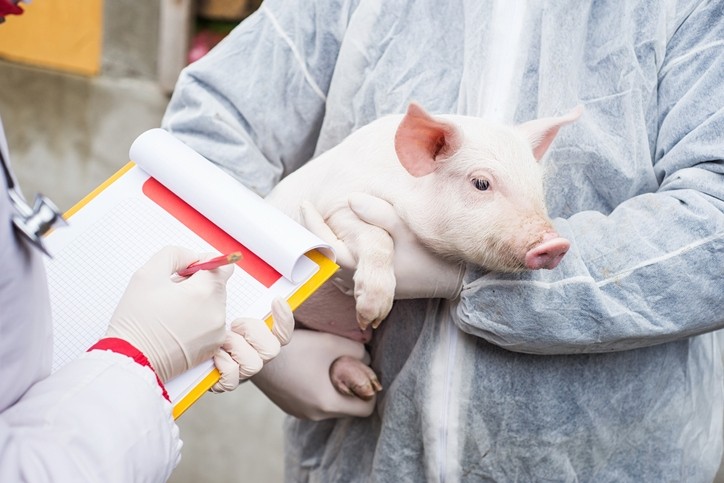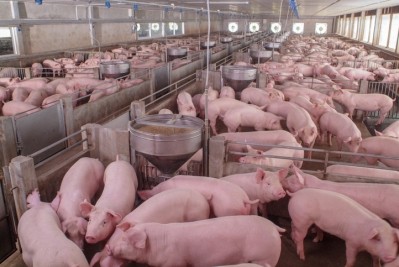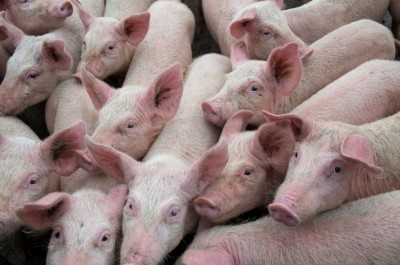USDA sinks $1.7m into swine organization's ASF research in Vietnam

The Swine Health Information Center (SHIC) received the $1.7m grant from the US Department of Agriculture’s Foreign Animal Service division to work with researchers and the National Pork Producers Council (NPPC) to establish a program to address African Swine Fever (ASF) in Vietnam.
The Canadian Food Inspection Agency (CFIA) is also involved in the project.
The multi-phase project is intended to establish a series of capacity building training projects and work with swine producers in Vietnam to develop ways to either prevent or manage ASF in the US, said Paul Sundberg, executive director with SHIC.
While SHIC is organizing the project, acting as “ringmaster” for the different pieces involved, the project is a large collaboration among several organizations including the US National Pork Producers Council, USDA, CFIA, the University of Minnesota, Iowa State University along with government officials, laboratories and producers in Vietnam.
ASF and feed research
Previous research evaluated the potential ability for several swine diseases, including ASF to survival international transport in feed and feed ingredients.
In March this year, experts at Kansas State University reported on the minimum levels of the virus that would need to be present in swine feed or water before animals start to develop the disease.
The research team found that swine became infected following the natural consumption of both contaminated feed and liquid. In the trial, 100g of feed dosed with the virus could make a pig sick.
In a real-world scenario, when an entire batch of feed could be contaminated with the virus, a pig eating a grow-finish ration might have up to 4k of feed a day – resulting in about 40 times the amount used in the trial, they said.
“There are two things that are going on with the project – we’re going to have a series of workshops and online learning opportunities for veterinarians and producers in Vietnam to learn about ASF and its epidemiology, and its control, and its management … building their capacity to react to and deal with the disease,” he told FeedNavigator.
“The second part is … to work with farmers over there, learn how ASF [spreads] on the farm, with the objectives of helping us prevent it [occurring on US soil], and if we can’t prevent it, at least it will help us to be able to better and more quickly respond and recover,” he added.
The grant supports a two-year program, but the intention is to start work developing the training and meeting with producers on farm as quickly as possible, he said. “
Tracking ASF in feed, on farm
Research on ASF in countries like the US or Canada can be limited by the size of the biosecure facility, said Sundberg. “We can do ASF research with two or three or 15 pigs, but it’s not like being on a farm where you’ve got hundreds of pigs together and the virus is circulating,” he said.
Working with producers in Vietnam should enable that scale of study.
The country first confirmed an outbreak of the disease in February this year and has since seen it spread to 63 provinces and cities across the country, according to information from the UN's Food and Agriculture Organization.
“[In the Vietnam research project] we’re going to try to do pathways analysis to understand how the virus gets on to the farm and how the infection is initiated … that includes the feed issues – to understand if and how feed might have a role in introducing the virus onto the farm as well as other pathways,” he added.
“There are other ways that it could get [on farm] so we’re going to look at all of those,” he said.
Researchers will be exploring if the disease can be sequestered on one part of a facility while healthy pigs are raised on a different portion of the farm, he said. “We don’t know if we could have it happen, but if it could happen, it would be a very valuable lesson learned before the virus would get here,” he added.
“We will also look at would be protocols for cleaning and disinfecting and then repopulation – to see if we can shorten the amount of time from the depopulation to the repopulation and do it effectively,” Sundberg said. “So you have confidence that you won’t get the virus back through environmental contamination.”
The educational part of the project will be led by researchers at the University of Minnesota.
“The main target [for the capacity building effort] will be veterinarians in Vietnam, government or private veterinarians, and producers.
“The content will include biosecurity, epidemiology, which is a broad category of how the virus acts on a farm, and it will include pieces like effective cleaning and disinfection,” he said. “And laboratory analysis – taking samples on farm, making sure you get good samples – [trying to] assist Vietnamese farmers to be able to diagnose and manage ASF infections.”















